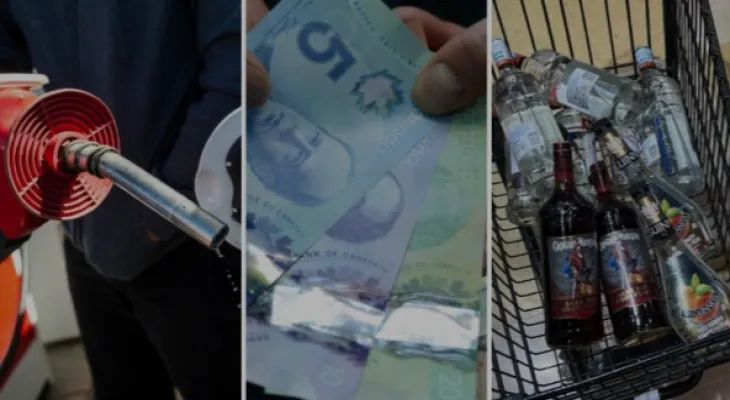Search here
Newspaper
Search here

Arab Canada News
News

Published: April 1, 2023
There are many major changes that may affect your portfolio on the way, some of which take effect on April 1st.
The federal minimum wage is scheduled to increase by $1.10 - from $15.55 per hour to $16.65 - and you may end up paying more for gas and alcohol starting Saturday.
Minimum Wage:
The minimum wage increase aims to keep up with inflation and is based on the Consumer Price Index, which rose by 6.8 percent last year, according to the federal government.
This wage increase only applies to federally regulated private sectors such as banks, postal services, air transport, railways, roads, and interprovincial marine transportation, where the government said the increase will help about 26,000 Canadian workers make life more affordable.
If the minimum wage is higher in the province or territory where you live, the employer must pay the higher amount.
Below are the provinces and territories where the minimum wage is scheduled to increase on April 1:
Manitoba: $13.50 to $14.15
New Brunswick: $13.75 to $14.75
Newfoundland and Labrador: $13.70 to $14.50
Nova Scotia: $13.60 to $14.50.
Yukon: $15.70 to $16.77
To learn more about minimum wages in Canada, please visit the government website.
Alcohol Tax:
The excise tax on alcohol was scheduled to increase by 6.3 percent on April 1, which could have been the largest increase in more than 40 years. However, the federal government temporarily covered it by 2 percent after an outcry from small brewers and distillers.
The temporary cap will only remain in effect for one fiscal year, but it is still a big win for those working in this industry, according to Beer Canada CEO CJ Hélie.
The federal alcohol tax is automatically raised annually based on inflation, which is why the planned increase was so high at 6.3 percent. It is separate from regional fees and sales taxes.
The government also expects to collect $100 million from production tax in the 2023-24 fiscal year, according to federal documents.
Carbon Price:
Expect to pay more at the pumps when you fill your car starting Saturday, as the federal government's carbon price rises from $50 per ton to $65 per ton, with the Canadian Taxpayers Federation saying the change will add 14.31 cents per liter of gasoline, up from 11.05 cents per liter.
Natural Gas Prices:
People living in British Columbia will soon see a break on their natural gas bill starting April 1.
After obtaining approval from the British Columbia Utilities Commission (BCUC), FortisBC is reducing the amount it charges for natural gas, with FortisBC charging $4.159 per gigajoule for gas, which is one dollar less than the previous price of $5.159. The price will remain in effect until June 30.
FortisBC changes the fees it charges for natural gas every fiscal quarter (with BCUC approval) to reflect the cost of sourcing natural gas at market prices.
People in the Lower Mainland will save about $7.50 per month on their bill on average, or about seven percent, according to FortisBC estimates. In northeastern British Columbia around Fort Nelson, people can save an average of $10.40.
Recycling Fees in Ontario:
If you live in Ontario and want to drink juice, you will pay a bit more for drinks and juices starting April 1 due to a new province-wide recycling program.
A "container recycling fee" may also be added to some non-alcoholic beverages when purchased from now on.
The fees will be imposed by the Canadian Beverage Container Recycling Association (CBCRA), which consists of major waste producers such as Coca Cola, Loblaw Companies Ltd, Nestle Canada, as well as many other companies.
CBCRA spokesperson Sherry Muirkirk told CTV News Toronto in February that the fees are likely to be passed on to consumers.
Recycling fees can range anywhere from one cent to three cents per beverage depending on the type of container, but they do not affect alcoholic beverages.
Comments